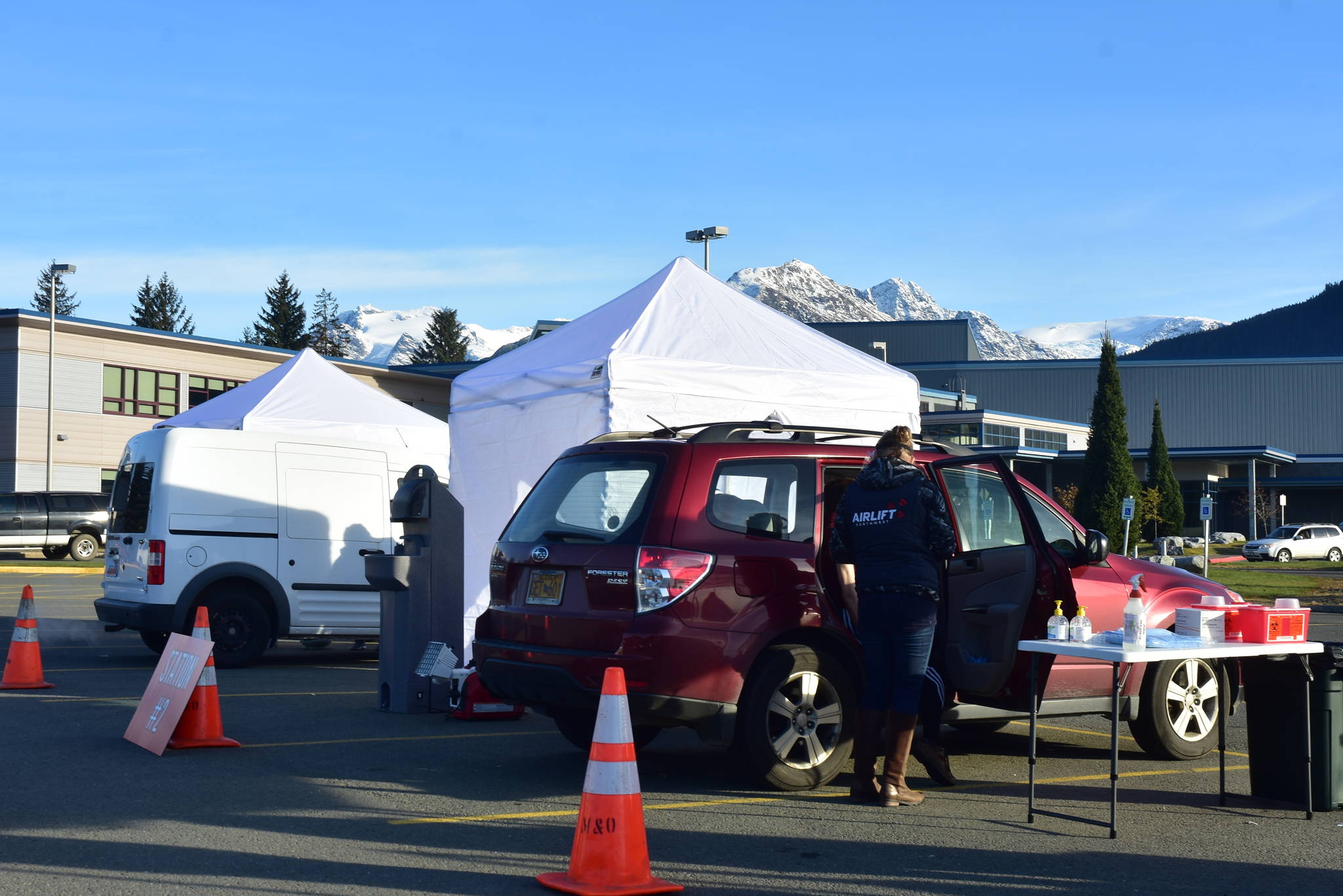Guidelines for distribution of pharmaceutical company Pfizer’s coronavirus vaccine will be released this week, said Dr. Anne Zink, Alaska’s chief medical officer.
Those guidelines will then be used by state and local health authorities would begin to develop their own schedules.
At least one COVID-19 vaccine is close to arriving in Alaska according to Zink, who Monday told reporters there’ll be a lot of progress made this week toward developing guidelines for distributing the medicine. With the vaccine almost ready, state health officials now want to make Alaskans aware of what the vaccine is and how distribution will work.
“This week is an incredibly packed week in the vaccine world,” Zink said in a video news conference with members of the Department of Health and Social Services. “They are coming. It’s incredibly hopeful and it’s exciting.”
The Centers for Disease Control and Prevention Advisory Committee on Immunization Practices is meeting Tuesday, Zink said, and from that meeting would come a set of priority guidelines for distributing Pfizer’s vaccine currently awaiting federal approval.
The guidelines from the CDC are not set in stone, Zink said, and are meant to provide information for local authorities in their own planning. Emergency Operations Center Planning Section Chief for the City and Borough of Juneau Robert Barr previously told the Empire the city will likely follow state guidelines on vaccine distribution.
In October, city and state health officials jointly organized a mass flu-vaccination effort meant to serve as a practice for the eventual distribution of a COVID-19 vaccine. That effort was able to inoculate more than 1,300 people over two days.
The plans being considered Tuesday are only for the vaccine being developed by pharmaceutical giant Pfizer, but other vaccines would require different guidance. Pzifer’s vaccine requires two doses and must be stored at extremely cold temperatures, said Tessa Walker-Linderman of the DHSS’ COVID-19 task force. Walker Linderman added Pfizer’s vaccine could be stored for up to 20 days using dry ice and five days in a medical freezer. Other vaccines, like the one recently submitted by another large pharmaceutical company, Moderna, will have different requirements and therefore have different guidance, she said.
[State health officials: Vaccine could arrive next month]
Health officials have said medical workers and those most vulnerable to COVID-19 will be among the first scheduled to receive a vaccine, but the general public won’t be getting their shots until spring. Pfizer’s vaccine is currently awaiting an Emergency Use Authorization from the Food and Drug Administration which will allow the drug to be delivered on an accelerated timeline. The FDA is meeting Dec. 10 to review Pfizer’s vaccine and Dec. 21 to review Moderna’s.
Vaccine shipments are set to begin within 24-hours of FDA approval, the Associated Press reported Monday. Alaska’s first shipment is expected to include fewer than 5,000 doses, Walker Linderman said, followed larger shipments of 10,000 and then 20,000 doses.
Among anticipated distribution challenges is getting people to take the vaccine, Zink said. Health officials have been hearing concerns from the public about the vaccine and the accelerated timeline on which it’s been developed. It is true the vaccine had been developed exceptionally quickly, Zink said, but she stressed the thoroughness with which the drug was made.
“We’re building on experience from previous work,” Zink said. “Like how your phone gets faster, (Pfizer) are working on past research.”
Zink said she had heard concerns the vaccine would change a person’s DNA, but said confidently the medicine doesn’t affect DNA and wasn’t capable of changing it.
Results from Pfizer’s vaccine are promising, Zink said, but it’s effectiveness will depend on how many Alaskans receive it.
“The more people that we have that cannot get the disease and can’t give it to others, the better,” she said. “This virus can only replicate if it has a human body in which to live.”
Zink said she was hearing some hesitation from some health care providers who would like more data, but said she is confident enough to receive the vaccine and would recommend it to family and friends.
There are currently no discussions about a vaccine mandate at the state level, Zink said, and under an EUA a mandate could not be issued until the drug has full approval from the FDA. Both Moderna and Pfizer’s vaccines require two doses, but other single-dose vaccines in development could make getting the vaccine easier in the future, Zink said.
The Alaska Vaccine Assessment Program already has a network of roughly 360 medical provider partners it has worked with for years, Walker Linderman said, and the vaccine task force is working with pharmacies and doctors offices across the state to increase distribution.
“We really want the public to have a good understanding of the pandemic,” she said. “We want people to have the information they need to make a decision about the vaccine.”
• Contact reporter Peter Segall at psegall@juneauempire.com. Follow him on Twitter at @SegallJnuEmpire.

